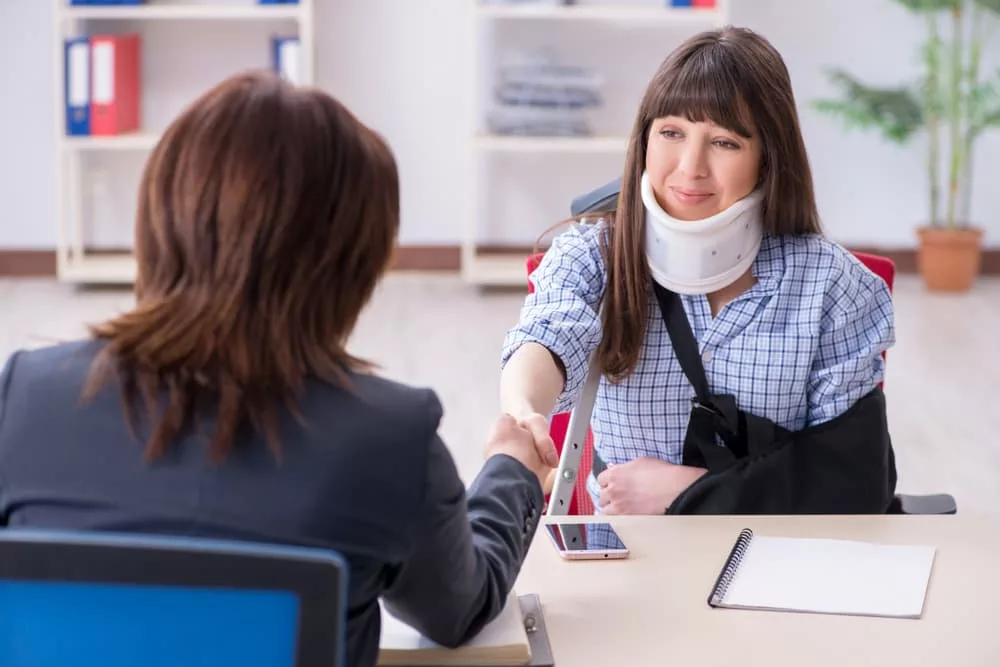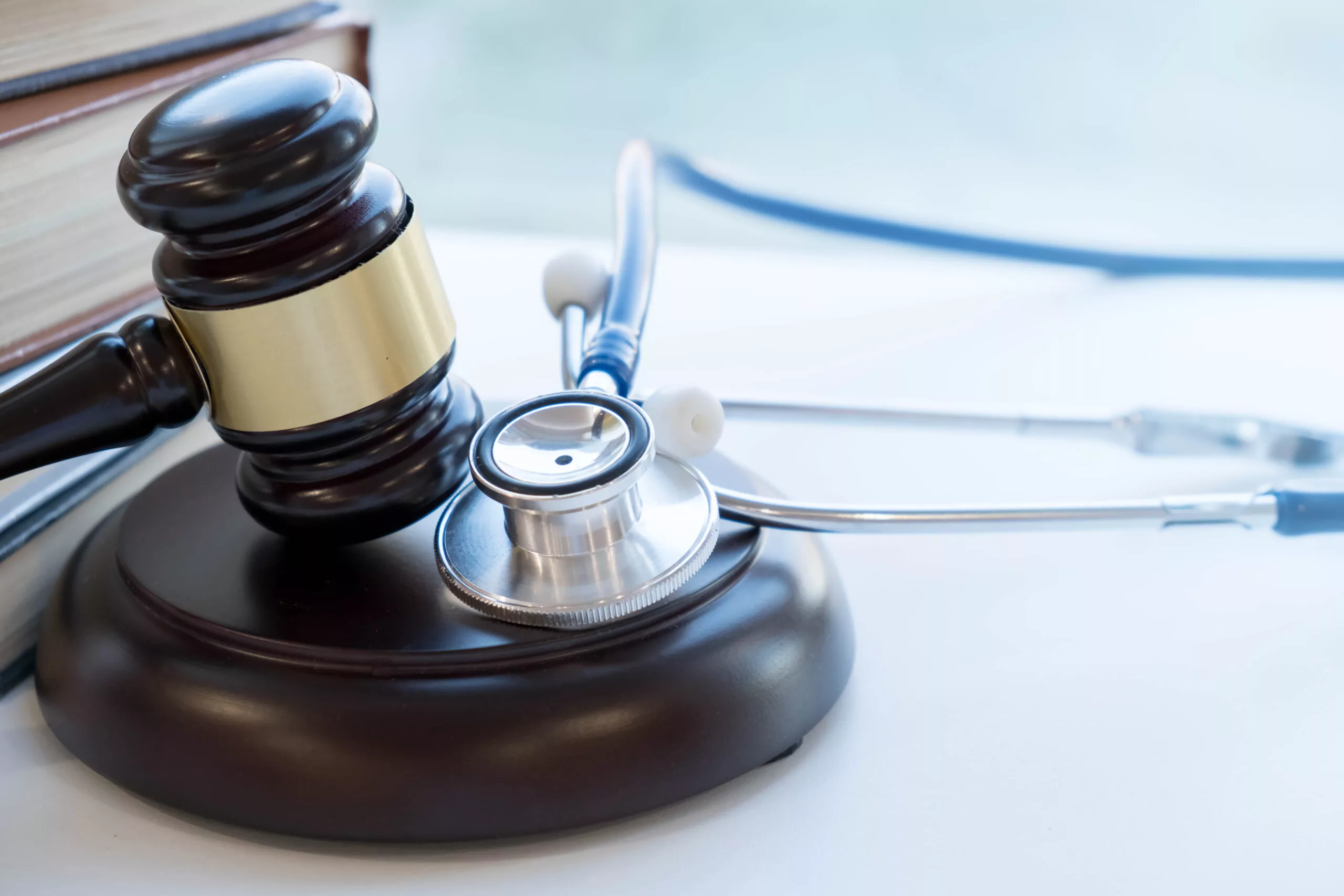Although Florida’s year-round warm weather makes the state ideal for riding motorcycles, bikers know that they face numerous risks. Motorcycle accidents have many causes, most related to the negligence or recklessness of other drivers. If you have suffered injuries in a motorcycle accident, the cause of the crash may determine your legal options for recovering compensation.
A motorcycle accident attorney can investigate the facts and circumstances of the crash to determine the cause and identify who you can hold liable for your injuries and losses. A lawyer can also pursue your legal claims and fight to recover compensation as you focus your time and energy on treating your accident injuries and getting back to regular life after a devastating crash.
Motorcycle Accident Statistics
According to the Florida Department of Highway Safety and Motor Vehicles, 8,649 motorcycle accidents occurred statewide in one recent year.
These crashes included:
- 621 fatal motorcycle crashes, resulting in 584 operator fatalities and 37 passenger fatalities
- 1,991 accidents resulting in incapacitating injuries, including 1,813 operators who suffered incapacitating injuries and 178 passengers who suffered incapacitating injuries
- 5,406 accidents resulting in non-incapacitating injuries, including 4.973 operators and 433 passengers who suffered other injuries
Miami-Dade County had 1,010 motorcycle crashes, including 54 fatal accidents and 761 accidents resulting in rider injuries.
Driver-related Causes of Motorcycle Accidents
Many motorcycle accidents occur when drivers of other vehicles fail to share the road with motorcycle riders. When drivers focus on observing only other passenger vehicles or trucks on the road, they may not notice a motorcyclist. A driver’s carelessness can lead to a catastrophic collision between a motorcycle and another automobile.
Some of the most common causes of motorcycle accidents related to driver negligence include:
Driver-related Causes of Motorcycle Accidents
Many motorcycle accidents occur when drivers of other vehicles fail to share the road with motorcycle riders. When drivers focus on observing only other passenger vehicles or trucks on the road, they may not notice a motorcyclist. A driver’s carelessness can lead to a catastrophic collision between a motorcycle and another automobile.
Some of the most common causes of motorcycle accidents related to driver negligence include:
- Speeding. Drivers who exceed the speed limit or drive too fast for conditions have less time to react to avoid a collision with a motorcycle.
- Reckless driving. Common reckless driving behaviors include excessive speeding, street racing, or swerving between lanes to get around traffic. These behaviors can lead to a motorcycle accident by making it more likely that a driver fails to see a rider before the collision.
- Aggressive driving/road rage. Drivers may recklessly or intentionally cause an accident with a motorcyclist after becoming angry or frustrated at a rider.
- Passing a motorcycle in the same lane. Motorcycle riders have the right to the entire width of a traffic lane. No vehicle may occupy the same lane as a motorcycle. A driver who fails to move to the adjacent lane when passing a rider risks causing a collision.
- Tailgating/following too closely. Drivers who follow too closely to motorcycles may cause a rear end accident because motorcycles come to a stop in a shorter distance than other types of automobiles.
- Disregarding traffic signs and signals. Running red lights or stop signs or failing to yield at yield signs may result in drivers crashing into motorcycle riders obeying traffic laws.
- Failing to yield the right of way. Drivers may collide with riders when failing to yield the right of way, such as when merging onto a highway or entering a traffic circle.
- Unsafe or illegal turns or lane changes. Drivers who fail to signal or check their mirrors before changing lanes or turning may collide with an unsuspecting motorcyclist. Illegal turns and lane changes also carry a significant risk of a crash.
- Backing up without looking. Failing to check mirrors or look behind the driver’s vehicle when backing out of a parking space or driveway may lead to a collision with a motorcyclist.
- Opening doors on a street-parked vehicle. Riders may get into an accident when a driver or vehicle passenger opens a door in front of the oncoming motorcyclist.
- Drowsy/fatigued driving. Driving while tired impairs a driver’s ability to safely operate a vehicle, as fatigue can slow reaction times, alter visual perception, and impair judgment and decision-making.
- Driving under the influence of alcohol or drugs. Drug or alcohol intoxication can have the same impairing effect on drivers as driving while tired.
- Distracted driving. Distracted driving behaviors, such as using a cell phone, adjusting the radio/climate control, looking for an object, eating/drinking, or grooming/applying make-up, cause a significant risk of collision.
- Driver inexperience. New drivers may not know whether to treat motorcycles the same as other motor vehicles, causing those drivers to panic and potentially cause a collision.
Road-related Causes of Motorcycle Accidents
Motorcycle riders may get into accidents due to hazardous conditions on the road, such as:
- Wet or slick road surfaces. Slippery road surfaces, especially during heavy rains or after storms that follow long dry spells, can increase the chances of a driver colliding with a motorcycle or a rider losing control of their bike.
- Potholes and broken pavement. Poor road maintenance that leaves potholes or damaged road surfaces may cause a motorcycle rider to crash.
- Debris in the roadway. Other drivers who leave trash or debris on the road may cause motorcyclists to crash if they hit objects or swerve to avoid a collision.
- Unsafe road or intersection design. Some highways or intersections may have a configuration or lack of traffic control equipment that increases the risk of accidents between motorcycles and other vehicles.
Weather-related Causes of Motorcycle Accidents
Weather and lighting conditions can also play a factor in causing motorcycle accidents.
Common outdoor conditions that cause motorcycle crashes include:
- Heavy rain or fog. Heavy precipitation or haze can reduce visibility for motorists, especially when drivers fail to turn on their headlights.
- High winds. Strong winds or gusts can make it difficult for motorists, especially exposed motorcycle riders, to maintain their lane.
- Low lighting/nighttime driving. Driving at night, dusk, or dawn can make it difficult for drivers to notice motorcyclists.
Common Types of Motorcycle Accidents
Common types of motorcycle accidents include:
- Head on collisions. A head on motorcycle accident occurs when another vehicle crashes front-first into a motorcycle. These accidents happen when drivers drift over the center line or median into opposing lanes of traffic or travel the wrong way down a one-way street or highway access ramp.
- Rear end collisions. A rear end motorcycle crash occurs when a vehicle runs into the back of a motorcycle. Rear end collisions often occur when drivers speed or tailgate motorcyclists since motorcycles can stop quicker than other motor vehicles. Drowsy, drunk, or distracted driving also increases the risk of rear end accidents.
- Sideswipe collisions. A sideswipe collision involves a driver bumping the side of their vehicle into a motorcyclist’s side. Sideswipes frequently occur when drivers pass motorcycles without moving over to the adjacent lane or attempt to change into a lane already occupied by a rider.
- Side impact/T-bone collisions. A side impact/T-bone motorcycle accident may involve a vehicle crashing into the side of a motorcyclist or a rider impacting the side of another automobile. Side impact collisions usually occur at intersections when drivers run red lights as a motorcyclist with a green light enters the intersection. T-bone collisions may also happen when a driver fails to yield the right of way to a motorcycle rider.
- Left turn accidents. A left turn accident involves a driver turning left who fails to yield the right of way to a motorcycle traveling straight through a green light.
- Single vehicle accidents. Motorcycle accidents can also occur without an impact between a biker and another vehicle. A single vehicle motorcycle crash or “wipeout” may occur due to another driver’s negligence (including by cutting off a rider), poor road conditions such as potholes, or a defect in the rider’s motorcycle.
What Injuries Do Motorcycle Riders Suffer in Accidents?
Motorcycle riders have little protection from an accident. As a result, riders often suffer more severe trauma than victims of car accidents.
In a crash, motorcycle riders may suffer:
- Lacerations
- Abrasions/road rash
- Degloving injuries
- Broken bones
- Dislocated joints
- Ligament, tendon, and muscle strains/sprains or tears
- Burns
- Crush injuries
- Herniated spinal disc injuries
- Whiplash injury
- Nerve damage
- Internal injuries and bleeding
- Spinal cord injuries and paralysis
- Head and facial injuries
- Traumatic brain injuries
- Traumatic amputation/dismemberment or limb loss
Obtaining Compensation for a Motorcycle Accident Caused by Another Driver’s or Party’s Negligence
After a motorcycle crash caused by another party’s negligence or fault, you can pursue a legal claim to recover your expenses or losses from the accident.
Financial compensation available in a motorcycle accident case can reimburse you for your:
- Costs of repairing damage to your motorcycle, or reimbursement for the value of your totaled motorcycle
- Medical and rehabilitation expenses, including hospital care, surgeries, prescriptions, or physical/occupational therapy
- Long-term care or support for disabilities that result from your injuries, including home health care, housekeeping/home maintenance, medical/mobility equipment, or renovations to install disability accommodations in your home
- Lost income from missed time from work or reduced earnings in a part-time/light-duty role while you recover from injuries
- Loss of future earning capacity and employment benefits if you become temporarily or permanently disabled from work
- Physical pain
- Emotional distress or trauma
- Lost enjoyment and quality of life caused by disabilities or permanent disfigurement/visible scarring
How Do You Prove Liability for a Motorcycle Accident?
Different parties may have liability for the motorcycle accident you suffered.
Examples of parties you might hold at fault for the crash include:
- Other motorists. You can pursue compensation from another driver who hits you or whose careless driving causes you to crash your motorcycle.
- An at-fault driver’s employer. You may have a claim against an at-fault motorist’s employer if the motorcycle accident occurs while the other driver is on the job.
- Vehicle or auto part manufacturers. Vehicle and part makers may have liability for a motorcycle accident caused by design or manufacturing defects that lead to a mechanical failure of your motorcycle or another vehicle.
Evidence that can help you prove liability for a motorcycle accident includes:
- Police crash reports
- Police citations or arrest reports
- Eyewitness testimony
- Accident scene photos/videos
- Surveillance or traffic camera footage
- Dashcam/helmet cam footage
- Logs from the vehicles’ event data recorders
- Driver cell phone logs
- Results of drivers’ alcohol/drug tests
- Traffic light and road sensor data
- Post-accident vehicle inspection reports
- Accident reconstruction or engineering expert reports
How Can a Motorcycle Accident Lawyer Help You Prove the Cause of the Crash?
Injured motorcycle riders often face an uphill battle when pursuing compensation after an accident. At-fault drivers and insurance companies often shift blame for the accident back onto the motorcycle operator by relying on outlaw stereotypes of motorcyclists to claim that the operator caused the crash by speeding or riding recklessly.
After a motorcycle accident, you need an attorney who will protect your rights to recover compensation from the other driver or the insurance company.
While you get treatment for your injuries, let your motorcycle accident lawyer:
- Investigate the accident to recover evidence for your case, including interviewing witnesses, documenting the crash scene, requesting police accident records, and collaborating with accident reconstruction and engineering experts
- Gather records to document your injuries and losses, including your medical records, pay stubs/income statements, bills, invoices, and receipts
- Identify all potentially liable parties and any applicable insurance coverages
- Draft insurance claims and demand letters on your behalf to pursue financial recovery in your case
- Aggressively negotiate for a settlement with at-fault parties and insurers that pays you maximum compensation for your injuries
- Advocate for you in court and at trial, if you need to pursue litigation to obtain financial recovery from liable parties and insurance companies
Motorcycle Riders Can Pursue Financial Recovery for Accidents Caused by Others’ Negligence
Motorcycle accidents have multiple potential causes, including the negligence of other drivers, poor road conditions, and adverse weather. If you suffered injuries in a motorcycle crash, the cause of the accident determines who you might hold responsible for your expenses and losses.
A motorcycle accident claim can pay for your motorcycle repairs, medical bills, lost income, and the pain and suffering you’ve endured. A personal injury attorney can help you pursue legal claims and maximize your financial recovery from an at-fault driver or other negligent parties.
Related articles
Related articles Related articles Related articles Related articles Related articles Related articles Related articles Related articles Related articles Related articles
Personal Injury
02 Feb 2024
How Long After An Accident Can You Claim Injury?






